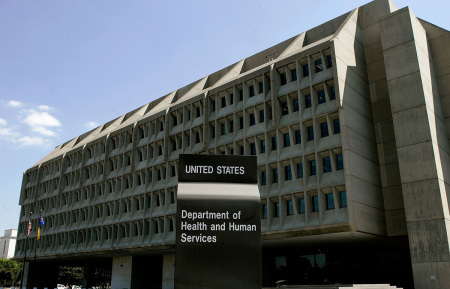Feds investigated University of Pittsburgh's use of fetal tissue from aborted babies, docs show

A pro-life watchdog group has released several obtained documents showing that federal law enforcement officials investigated the University of Pittsburgh after its research practices involving fetal tissue were the focus of national media headlines.
According to a statement last week, documents obtained by the pro-life activist group Center for Medical Progress and the conservative activist group Judicial Watch through a Freedom of Information Act request show a university official acknowledging an investigation opened by the U.S. Department of Health and Human Services in 2021.
CMP is the pro-life group that released a series of videos in 2015 that purportedly showed Planned Parenthood executives discussing the illegal sale of aborted baby body parts, a claim that the corporation has repeatedly denied. CMP President David Daleiden has also raised concerns about Planned Parenthood acting as a supplier of fetal body parts for the University of Pittsburgh.
"If this investigation has been conducted honestly, the facts uncovered may be more horrifying than we ever imagined," Daleiden said in a statement.
"Planned Parenthood has cloaked its human atrocities committed against vulnerable mothers and infants under its 'research' program for decades — it is time for justice under the law for every level of the taxpayer-funded enterprise of selling aborted baby body parts."
In May 2021, CMP and Daleiden raised questions about federal funding awarded to the University of Pittsburgh, which conducted experiments on human fetal tissue, including one experiment where aborted babies' scalps were grafted onto lab rats. Pro-lifers also led a protest in June 2021, calling for the firing of the former head of the National Institute of Allergy and Infectious Diseases, Anthony Fauci.
In one email dated Nov. 5, 2021, Rob Rutenbar, Pitt's senior vice chancellor for research, acknowledged that the university had received a subpoena from HHS' Office of Inspector General. Rutenbar wrote the email in response to NIH Deputy Director for Extramural Research, Dr. Michael Lauer, requesting more information about the university's policies and procedures surrounding fetal tissue.
"With regard to your request for documentation/information, please be aware that we received a subpoena from HHS OIG requesting similar documentation on October 28, 2021," Rutenbar wrote.
"We are happy to provide the requested information to both you and the HHS OIG, however, [redacted] instructed us not to provide the documentation you have requested information until he has had the opportunity to speak with you."
The status of the HHS OIG investigation is unknown, and an OIG spokesperson told CP that the office can "neither confirm nor deny whether our agency is or is not conducting a particular investigation."
The University of Pittsburgh did not immediately respond to The Christian Post's request for comment.
One of the university's experiments that attracted media attention was a September 2020 study published in Scientific Reports that described researchers' efforts to develop "humanized mice" by transplanting fetal body parts onto rodents.
The material necessary to create skin grafts on the rodents was reportedly procured by scalping children who were aborted at 18 to 20 weeks gestation.
In August 2021, CMP and Judicial Watch released a grant application that the University of Pittsburgh submitted to the NIH to become a distribution hub for the GenitoUrinary Developmental Molecular Anatomy Project.
According to the application, the university stated that its fetal tissue collections "can be significantly ramped up" to supply GUDMAP program researchers with fetal body parts and organs.
One particular point in the grant application that CMP highlighted is the section where the university stated that during its process of harvesting fetal parts, "Ischemia time is minimized." According to the NIH, this refers to "the time a tissue, organ, or body part remains at body temperature after its blood supply has been reduced or cut off but before it is cooled or reconnected to a blood supply."
The university also identified "labor induction" as the "procedure that will be used to obtain the tissue."
CMP believes that this indicates that the University of Pittsburgh harvests kidneys from aborted babies while they're still alive.
David Prentice, the vice president of scientific affairs at the pro-life research group Charlotte Lozier Institute, told CP that he thought the new report from CMP was "shocking and brutal."
"Using taxpayer dollars, the university, with the help of local abortionists, received body parts from aborted babies. Some redacted details leave open the possibility that these babies' organs were harvested even after they were potentially born alive following induced abortions," the pro-life advocate told CP in a statement.
"The current formal investigation, now confirmed, will hopefully expose any and all unethical and illegal practices performed on these children," he continued. "The current regulation of fetal tissue research is negligent and has made way for the trafficking of aborted baby body parts. We hope all the facts are exposed by this investigation."
Dr. Ronna Jurow, an OB/GYN who previously worked at Planned Parenthood and considers herself "pro-choice," told Fox News that there is "no question" the university's comments about ischemia time meant infants would be alive when their organs were harvested. The university has denied any wrongdoing regarding its fetal experimentation practices.
A 2021 investigation into the university's handling of fetal tissue conducted by the Washington, D.C.-based law firm Hyman, Phelps & McNamara stated that the University of Pittsburgh is "fully compliant with federal and state regulatory requirements" regarding fetal tissue research.
Some pro-life advocates and Republicans, however, argued that the investigation did not go far enough because it didn't investigate the source of the university's tissue bank, the University of Pittsburgh Medical Center. The school has maintained that the medical center is a separate, private entity.
Samantha Kamman is a reporter for The Christian Post. She can be reached at: samantha.kamman@christianpost.com. Follow her on Twitter: @Samantha_Kamman





















